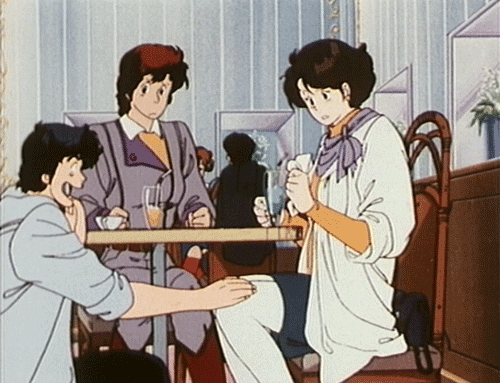- VerseTaku
- Posts
- Prince's Sign o' the Times and City Hunter: Signs of the Times
Prince's Sign o' the Times and City Hunter: Signs of the Times
In the vibrant landscape of pop culture, two entities have transcended their formats to tap into the zeitgeist of their time: Prince's Sign o' the Times—a zeitgeist-capturing sonic masterpiece, and City Hunter—a manga and anime series that marries action with heart. Today, we dance through their parallel universes, unveiling how each medium speaks volumes of our internal and external struggles.

While Prince's eclectic double album dissects the complexities of love, politics, and existential angst, City Hunter pits its suave and skilled protagonist against a backdrop of crime and corruption, all the while unraveling tangled human emotions. Both Prince and Tsukasa Hojo, the creator of City Hunter, delve into identity, navigating through the constructs of their exposed and hidden selves.
Society and its myriad conflicts find their beats in Sign o' the Times, as Prince articulates the woes of his era with poignant finesse. Parallelly, City Hunter scales the societal strata, challenging normative behaviors and showcasing an urban jungle rhythmized by moral dilemmas.
The heartstrings are not spared in either medium; love is a recurrent melody. Prince's poignant croons and sultry aesthetics vocally canvas the depths and heights of passion. Similarly, City Hunter's intricate relationships teeter between professionalism and palpable desire, threading an emotional tapestry for viewers to unravel.
Conflict storms through the album's versatile tracks and City Hunter's gripping plotlines, each portraying a constant battle within and around the individual. Growth, as seen in both, comes from the scars of each clash, blossoming in soundwaves and story arcs alike.
A Dance of Lyrics and Lines
"In France, a skinny man died of a big disease with a little name"
Prince's poetic prowess resonates through these lyrics, painting vivid narratives in few words. City Hunter's stark panels and dynamic animations convey similar gravitas, often without a single uttered dialogue. It's the marriage of Prince's mellifluous compositions with City Hunter's visual poignancy that encapsulates a full spectrum of storytelling that is as striking as it is subtle.
Emotions and Echoes in the Halls of Reception
The heart-pulse of Sign O' the Times lies not just in its auditory brilliance but in its ability to evoke a profound emotional response from listeners. Prince taps into our deepest sensibilities, just as City Hunter's characters endear themselves to viewers, engendering empathy through their humanity.
Community forums and fan sites alike buzz with discussions on the significance of Prince's lyrics, much like how City Hunter spurs conversations on the nature of justice, human connection, and the complexity of modern living. They both serve as incredible catalysts for introspection and dialogue.
Whispers of Wisdom: Lyrics and Quotes Intertwined
"It's silly, no? When a rocket ship explodes, and everybody still wants to fly"
These words echo with a resonance seen in City Hunter's protagonist, Ryo Saeba, whose nonchalant exterior belies a commentary on the society's obsession with danger and its flirtation with fatality.
As City Hunter opines through visuals and dialogues, so does Prince with his musical soliloquies. Each verse, each scene, is a quote delivering wisdom wrapped in entertainment—a message transmitted through different frequencies, yet heard with the same empathetic ear.
The Grand Finale: Reflections on the Mirror Ball
What can Sign o' the Times aficionados learn from City Hunter and vice versa? They are timeless tales dressed in distinct garments, each reflecting on cultural and personal revolutions. They remind us that though we consume art in various forms, the core experiences, questions, and lessons are universally human.
Fans of one will find familiarity in the embrace of the other, discovering that the significance of art transcends its medium. Let Prince's album be the soundtrack to City Hunter's ballet of bullets and emotions, and allow the anime to add color to the narrative verses sung by the late, great poet Prince.
In closing, both Sign o' the Times and City Hunter serve as cultural bookmarks, icons that, despite being encapsulated in their eras, break free from temporal bounds to chat with our contemporary souls about the signs of the times, then and now.